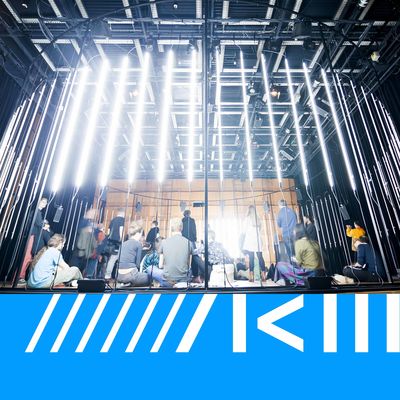Symposien, Vorträge, Lesungen, Konzerte, Performances: die Spanne an Veranstaltungen im ZKM ist breit! Thematisch bewegen wir uns zwischen Kunst und Philosophie, Wissenschaft und Technologie sowie Wirtschaft und Politik. Gemeinsam mit unseren ReferentInnen, KünstlerInnen, PerformerInnen und MusikerInnen aus verschiedensten Kulturkreisen und Disziplinen hinterfragen und diskutieren wir die Auswirkungen von Medialisierung, Digitalisierung und Globalisierung auf unsere Gesellschaft. /// Symposia, lectures, readings, concerts, performances: the range of events offered at the ZKM is broad! Thematically we move between art and philosophy, science and technology as well as economy and politics. Together with our speakers, artists, performers and musicians from various cultures and disciplines, we question and discuss the effects of medialization, digitization and globalization on our society.
http://www.zkm.de
Biological Networks
BarabásiLab. Hidden Patterns | Online discussion
[01.05.2021]
György Buzsáki, Korinna Allhoff, Alice Schwarze and Albert-László Barabási in conversation
The exhibition »BarabásiLab. Hidden Patterns« is dedicated to the study of various complex systems. As such, biological networks provide the subject for this dialogue between Korinna Allhoff, György Buzsáki, Alice Schwarze, and Albert-László Barabási who give insights into their research and projects.
What are biological networks? Where can they be found? What do they look like and what role do visualizations play in exploring them? Four experts from network and neuroscience, biology, and theoretical ecology will address these and other questions in the panel discussion. In addition to neural and ecological networks, it will focus on the interconnectedness of all species.
With over 100 billion nodes, the human brain is perhaps the most complex network known to science. Neuroscientist György Buzsáki first outlined the role of GABAergic interneurons in network oscillations. He is primarily interested in »neuronal syntax,« i.e., how the segmentation of neuronal information is organized by the multitude of brain rhythms to support cognitive functions. Methods of applied mathematics and network science can help in the study of this complex system, as Alice Schwarze, PhD, demonstrates with her research. The extraordinary complexity of the brain's wiring patterns can also be seen in the visualizations by Albert-László Barabási and his lab. The 3D representations of the so-called »Connectome« open up new ways to understand brain function.
Korinna Allhoff, on the other hand, conducts research in the field of theoretical ecology and depicts ecosystems as networks in which different species interact with each other. She investigates the relationship between network structure and its stability, as well as the effects of changing environmental parameters, such as higher average temperatures.
The panel discussion aims to provide insight into the wealth of existing biological networks, their modes of representation, and the research approaches coupled to them.
